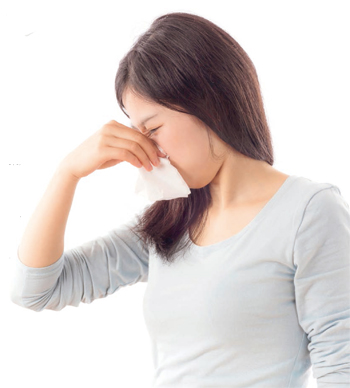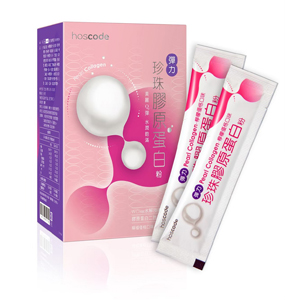03.2020 Life Guide
Ah-choo'! Allergic rhinitis is coming.
Dr. Fan Eastern Memorial Hospital /


Patients with allergic rhinitis often sneeze several times before they go to bed or get up early in the morning, and then have the symptoms of runny nose and stuffy nose; or when they are in reorganize wardrobe, quilt, and cleaning, they are exposed to a large number of allergens at once and have rhinitis symptoms, and when they are serious, they will have headache, dysosmia and conjunctivitis.
Causes of rhinitis
In fact, as long as there is inflammation in the nasal mucosa, it is called rhinitis. Besides allergies, there are also viral or bacterial infections, endocrine problems, drug-induced (drug-induced rhinitis), occupational diseases (such as chromium), or allergic to aspirin And so on. When patients come for diagnosis because of nasal symptoms (sneezing, nasal congestion, rhinorrhea, etc.), doctors must first master the correct history, and carry out a detailed nasal examination to distinguish the causes of rhinitis.
Differentiation of rhinitis
Rhinitis can be roughly divided into: allergic, non allergic. Anaphylaxis is divided into seasonal and annual; non allergic rhinitis is divided into infectious and non infectious. Infectious rhinitis is most common in viral infection, i.e. common cold, or secondary infection due to bacteria. To noninfective rhinitis, it includes vasomotor rhinitis, nares (non allergic rhinitis with eosinophilia syndrome), or drug rhinitis And so on.
The occurrence of allergic rhinitis
In addition to the patient's own constitution, it is necessary to contact with allergens to induce symptoms, and the severity of the disease is positively related to the duration and the concentration of allergens in the environment. So the first step in the treatment of allergic rhinitis is to prevent and try to avoid contact with allergens.
Avoid contact with allergens
In Taiwan, the most common allergen is dust mite. The methods to avoid contact with dust are as follows:
1. Do not lay carpet or place fluffy toys or dolls in the bedroom.
2. Use the anti allergy quilt cover, bedspread and pillow cover.
3. Clean all kinds of furniture in the room every week.
4. Wash the clothes put into the room or placed in the room with 60 ℃ water.
5. The environmental humidity in Taiwan is generally high. It is suggested to use dehumidifier to keep the environmental humidity below 50% so that the dust hopper cannot survive.
Although the above methods can not ensure the complete removal of dust, they still have some effect on the improvement of symptoms. As for the pollen that causes seasonal allergy, as long as the season arrives, the pollen is everywhere, which is difficult to avoid, and usually needs to be treated with drugs.

To slow down the perennial allergic rhinitis in adults, the first step is still to avoid allergens and try to remove the allergic factors in the environment. Antihistamines (oral or topical) are the first choice if there are mild or sporadic symptoms that require medication. If the patient has symptoms of nose and eyes at the same time, they should take orally; if only nose symptoms, they can take orally or nasal spray. If the symptoms of the eyes are serious, you can add the antihistamine solution for the eyes.
If the patient has moderate symptoms or the symptoms are too long to be controlled by antihistamine, local steroid spray should be used regularly throughout the pollen season. However, local steroids should be stopped three months after treatment. If symptoms recur, antihistamines or local steroids should be given again depending on the severity. If accompanied by eye symptoms, you can also add antihistamine or cromones eye drops. If it is still uncontrollable, or the patient has extremely serious symptoms, antihistamine and local steroids can be used together. In addition, consider whether to adjust the dose. When the treatment is properly controlled for a period of time, one of them can be stopped.
If these methods can not control the symptoms of rhinitis well, you can add hyperemia (oral or nasal) to relieve nasal congestion, but be careful of the drug-induced rhinitis caused by excessive use. If these methods are not effective, desensitization treatment can be started two months after the pollen season.
It is worth noting that when the above treatment is still under control, a thorough examination of the nose must be carried out to eliminate other non allergic problems, such as: anatomical variation, nasal polyps, and even chronic sinusitis. If medication does not remove the obstruction, consider surgery, such as electric burn, laser burn, or inferior turbinectomy.
Treatment of perennial allergic rhinitis in children
The principle of treating children is basically the same as that of adults, but the possible side effects of drugs need to be evaluated more carefully, and "avoiding allergens" is more important in the treatment of children. Strict environmental cleaning can reduce symptoms and the need for medication or desensitization. The first choice of drug treatment is oral or nasal antihistamines. For severe patients, when the single drug can not be controlled, nasal steroids and antihistamines are combined. If it is still ineffective, desensitization therapy can be tried.
The incidence of allergic rhinitis in Taiwan is getting higher and higher. If patients can get correct diagnosis in early stage, know how to avoid allergens or possible irritants, and choose appropriate drug treatment, they can effectively control symptoms and improve quality of life.




















